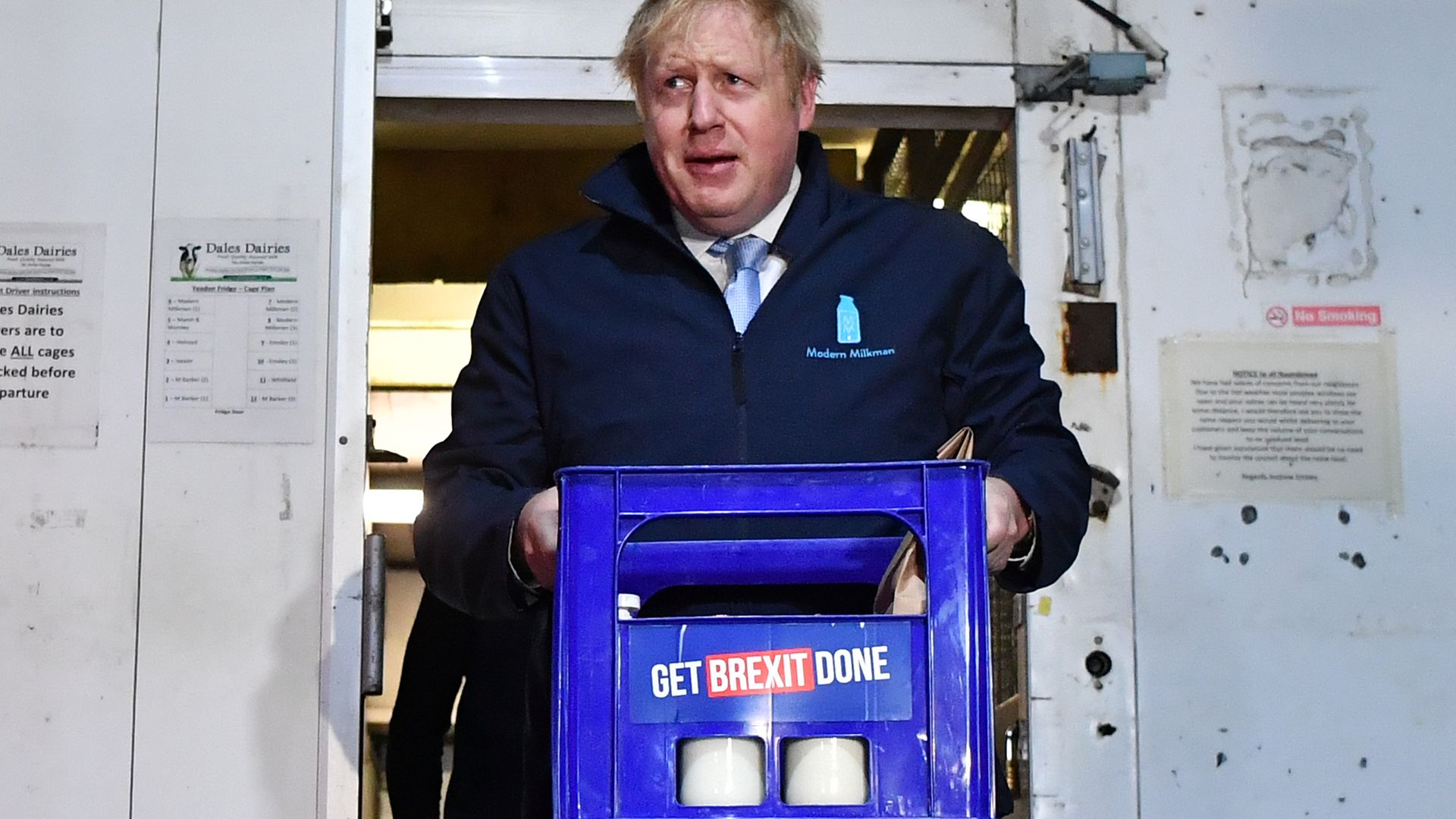
The sound of us Remainers crying over spilled milk has been replaced by everyone crying over unsold milk
It has been another gloomy week on the sunlit uplands of sovereign Britain.
The dairy industry has been among the biggest losers of Brexit so far, with milk and cream exports to the EU down 96.4% year on year in February. Just £900,000 of the stuff made it out to our former partners, compared with over £24m in February 2020.
Meanwhile, cheese exports were down 65% year-on-year – and although that represented an improvement on the disastrous 85% drop in January, it’s hardly reassuring for firms like County Milk, the UK’s largest privately owned dairy ingredients business.
For although the trade body Dairy UK claims that “normal patterns of trade are resuming as the market smooths itself out”, County Milk’s Phil Langslow told the Guardian it doesn’t yet know the “true cost of Brexit”. “What we are seeing is, it is substantially different and significant enough to just not make [exporting] viable in a number of cases,” he said.
With chicken and beef sales to the EU also down by nearly 80% year on year, the Food and Drink Federation says Brexit has cost British exporters more than £1.1bn since the start of the year, a figure that didn’t appear on any red buses during the referendum campaign.
The trade body has urged Boris Johnson to sort it by reopening talks with the EU, with Dominic Goudie, the FDF’s head of international trade, saying: “Exports to our biggest market, Ireland, have also dropped more than two thirds. UK businesses continue to struggle with inconsistent and incorrect demands at EU borders, and small businesses have been hardest hit.
“It is essential that the EU-UK partnership council and its trade specialised committees are convened to urgently address problems.”
That’s something Johson has so far been unable to make room for in his busy schedule of asking donors to buy his wallpaper and wrecking the union.
The hope for Brexiteers seems still to be that lost food and drink exports to the EU will be replaced by exports to non-EU countries. At the moment, though, it looks a tall order – exports to the EU were down 40.9% overall in February compared to an 8.7 per cent rise to non-EU countries. That’s a loss of £421m compared to a gain of £56m.
And as Andrew Kuyk, director-general of the Provision Trade Federation, which covers the dairy and pig meat trade, says: “If we are struggling to get it into Calais, how easy is it going to be to get it into Beijing, or Tokyo?”
Alas, while the PM milks his local election victories and looks like the cat that got the cream in Hartlepool, the outlook for the dairy industry is very sour indeed.
What do you think? Have your say on this and more by emailing letters@theneweuropean.co.uk
Warning: Illegal string offset 'link_id' in /mnt/storage/stage/www/wp-includes/bookmark.php on line 357
Notice: Trying to get property 'link_id' of non-object in /mnt/storage/stage/www/wp-includes/bookmark.php on line 37







